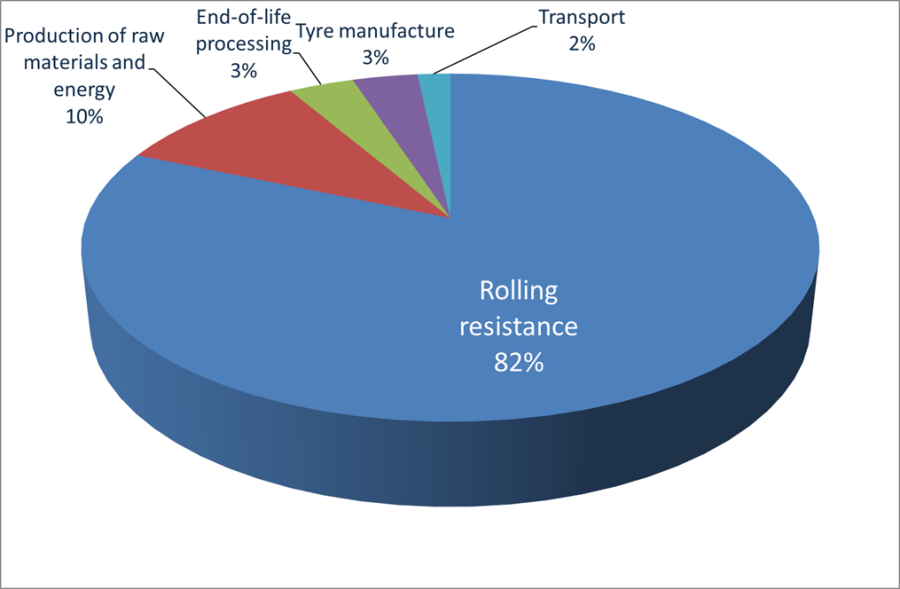
Typically, 80% of the whole-life CO2 emissions of a car tyre arise from its use. This is why choosing low rolling resistance tyres and keeping them correctly inflated are so important.
Surveys have repeatedly shown that 25% of vehicles have at least one tyre 25% under-inflated. This leads to increased fuel consumption, poorer vehicle handling and reduced tyre life. Over 600,000 tyres and 1.5 million tonnes of CO2 are wasted in the UK every year due to tyre under-inflation.
Tyre safety and environmental performance are shown on the product label. There is a difference of approximately 10% in fuel consumption between the lowest- and highest-graded car tyres. This corresponds to a saving in CO2 emissions of over 10g/km for a full set of car tyres, correctly inflated.
In excess of 2 million tonnes a year of additional CO2 emissions result from the fitment of replacement tyres with higher rolling resistance than the original equipment. About half the car tyres offered on the replacement market are graded E for rolling resistance. (A is the highest performing class). This has barely changed over the last 10 years, despite the introduction of the tyre labelling regulation. BTMA members welcome new regulations which from 2024 will progressively remove from the market almost all car tyres graded D and below for rolling resistance, raising minimum performance by approximately 9%. Similar improvements are in prospect for van and truck tyres.
Further information and reading can be found below:
